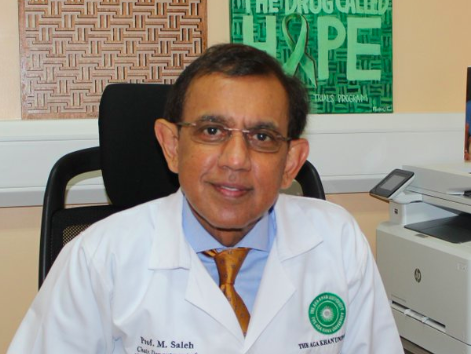At the Aga Khan University Hospital in Nairobi and Medical College, East Africa, we have demonstrated that it is possible to conduct clinical trials with the same standards of quality and compliance as leading institutions in the West. Last week, on May 20th, the world marked World
Clinical Trials Day, a moment to reflect on the critical role that clinical
research plays in the advancement of modern medicine. This year’s theme,
“Rethinking Clinical Trials: Inclusivity in Practice,” is not only timely, but
also urgent. For Sub-Saharan Africa, a region characterized by immense genetic
diversity, a growing disease burden, and historically underrepresented
populations, the call for greater inclusivity in clinical research must be
heeded.
Historically, global clinical research has
been disproportionately concentrated in well-resourced countries. The vast
majority of new treatments, including those for cancer, heart disease, and
diabetes, have been developed and tested in Western populations. Fewer than two
per cent of clinical trial participants are of African ancestry. This stark
disparity raises critical questions about the efficacy, safety, and dosing of
these life-saving therapies for African patients, whose genomic profiles differ
significantly from those of their Western counterparts.
Beyond inclusion, this is a matter of equity
and representation. Treatments made available in resource-constrained countries
may not adequately meet the unique needs of the populations they serve. Yet
with its youthful population, improving healthcare infrastructure, and
expanding research capacity, Sub-Saharan Africa is well positioned to become a
leader in global clinical research.
Inclusivity in clinical trials is not just a
moral imperative, but a scientific necessity. Genetic variation, cultural
beliefs, and socioeconomic factors can all influence how populations respond to
therapies. Without representative data, treatment outcomes can be
unpredictable.
While Sub-Saharan Africa bears a
disproportionate burden of infectious diseases such as HIV/Aids, tuberculosis,
and malaria, the region is also witnessing a surge in non-communicable
diseases, notably cancer, diabetes, and cardiovascular disease. Yet only a tiny
fraction of global clinical trials are conducted in Africa.
This imbalance forces African populations to
depend on treatment guidelines derived from non-representative populations. For
example, the blood thinner Warfarin is metabolized differently in African patients
compared to Caucasians or Asians, resulting in unpredictable effects. In
addition, the Beta-blockers, a common class of hypertension drugs, are often
less effective in African patients at standard doses.
Africa is projected to experience the largest proportional
population growth in the coming decades. As life expectancy increases, Africans
will become significant consumers of therapies for chronic and age-related
diseases. Including African populations in drug development is both a clinical
and an economic necessity.
But inclusion is not limited to recruiting
African patients, it also means empowering African scientists, clinicians, and
patient advocates to co-lead clinical research initiatives. These include
involving local experts in protocol design and ethical review, addressing
cultural norms and rural healthcare access, and streamlining regulatory
frameworks to support timely, ethical, and efficient trials.
Moreover, pharmaceutical companies must commit
to ensuring equitable post-trial access to new therapies. Governments, in turn,
must invest in universal health coverage and research infrastructure.
All standard treatments in use today were once
investigation agents studied in clinical trials. Countless volunteers
contributed to the development of the therapies we now rely on. Today’s
patients, including those in Africa, deserve the opportunity to participate in
and benefit from such research; ethically, voluntarily, and with the right to
withdraw at any time.
Successful integration of Africa into the
global research landscape requires pharmaceutical partners willing to invest in
the continent, regulatory authorities prepared to conduct efficient, yet
thorough reviews and local institutions dedicated to building strong, compliant
clinical trial units.
At Aga Khan University Hospital in Nairobi and
Medical College, East Africa, we have demonstrated that it is possible to
conduct clinical trials with the same standards of quality and compliance as
leading institutions in the West. Our Kenyan-trained research team matches the
caliber of any I have worked with in the United States.
By fully embracing clinical research, we offer
our patients access to novel therapies, enable African representation in
international trials, and ensure that global innovations are relevant,
effective, and safe for African populations. Now is the time for Sub-Saharan
Africa to rise as an equal partner in the global pursuit of better health
through research.
Prof Mansoor Saleh, chairs the department of
haematology-oncology and is the founding director of the cancer centre at the
Aga Khan University Medical College, East Africa and Aga Khan University
Hospital, Nairobi.


